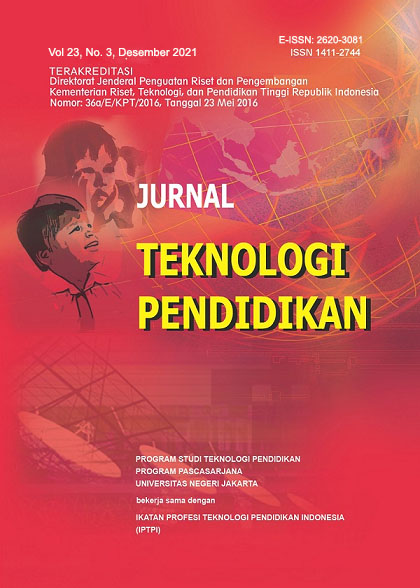Investigating The Language Learning Strategy Used By English Department Students At Madako University
DOI:
https://doi.org/10.21009/jtp.v23i3.23678Keywords:
Language Learning Strategy, SILL, LearningAbstract
This research aims at Investigating the Language Learning Strategy Used by English Department Students at Madako University. The type of this research is qualitative research. The samples were 15 students at B class which were selected purposively. Its data were collected through questionnaire. The result showed that students used all the strategies including memory, cognitive, compensation, metacognitive, affective and social strategy. The most strategy used by the students were metacognitive strategy. And it showed, students used metacognitive strategy (20%), followed by the social strategy (18%), compensation strategy (16%), affective strategy (16%), cognitive strategy (15%), and memory strategy (15%). The result also showed the students were categorized as high language learning strategy users.
References
ALshammari, M.K (2015). The Effect of Using Metacognitive Strategies for Achievement and the Trend toward Social Studies for Intermediate Schools Students in Saudi Arabia. International Journal of Education, Learning and Development, Vol. 3, No. 7, 45-54.
Cohen, Andrew., D. (1996). The Impact of Strategies-Based Instruction on Speaking a Foreign Language. Minneapolis: University of Minnesota.
Gulo, W. 2008. Strategy Belajar Mengajar. Jakarta:Grasindo.
Hakim, Syaima. (2018). Investigating the Cause of EFL Students’ Foreign Language Anxiety and Their Speaking Performance. Bandung: Universitas Pendidikan Indonesia.
Lestari, Trinanda Mahdiah., & Fatimah, Sitti (2020). An Analysis of Language Learning Strategie Used By the EFL Student Teachers at English Education Program in Universitas Negeri Padang. Journal of English Language Teaching. Volume 9 No.1
Lestari, Oktaviani, Nurliana. (2015). Language Learning Strategies of English Education Department of FITK (A Comparison Descriptive Study at the Fourth and the Sixth Students) Jakarta: Syarief Hidayatullah State Islamic University.
Nickols, Fred. (2016). Strategy Meanings. Fred Nickols, 7.
Miles, M. B and A. Michael Huberman. (1994). Qualitative Data Analysis. Sage Publications, International Educational and Professional Publisher Thousand Oaks,London New Delhi.
Oxford, Rebecca, L. (1990). Language Learning Strategies: What Every Teacher Should Know. Boston: Heinle & Heinle.
P. Leavy. (2014). The Oxford Handbook of Qualitative Research. New York: Oxford University Press
Santikam, Busaya. (2014). The Use of Language Learning Strategies: A Case Study of Undergraduate in a Private University, Issue 21 Volume19.
Scarcella, R. & Oxford, R. (1992). The Tapestry of Language Learning: The Individual On The Communicative Classroom. Boston: Heinle & Heinle.
Trevor., J. (Ed.). (2008). Can Compensation Be Strategic? A Review of Compensation Management Practice in Leading Multinational Firms.Cambridge: Judge Business School.
Downloads
Published
How to Cite
Issue
Section
License
Jurnal Teknologi Pendidikan is an Open Access Journal. The authors who publish the manuscript in Jurnal Teknologi Pendidikan agree to the following terms.
Attribution-ShareAlike 4.0 International (CC BY-SA 4.0)
-
Attribution — You must give appropriate credit, provide a link to the license, and indicate if changes were made. You may do so in any reasonable manner, but not in any way that suggests the licensor endorses you or your use.
-
ShareAlike — If you remix, transform, or build upon the material, you must distribute your contributions under the same license as the original.
- No additional restrictions — You may not apply legal terms or technological measures that legally restrict others from doing anything the license permits.
Notices:
- You do not have to comply with the license for elements of the material in the public domain or where your use is permitted by an applicable exception or limitation.
- No warranties are given. The license may not give you all of the permissions necessary for your intended use. For example, other rights such as publicity, privacy, or moral rights may limit how you use the material.








